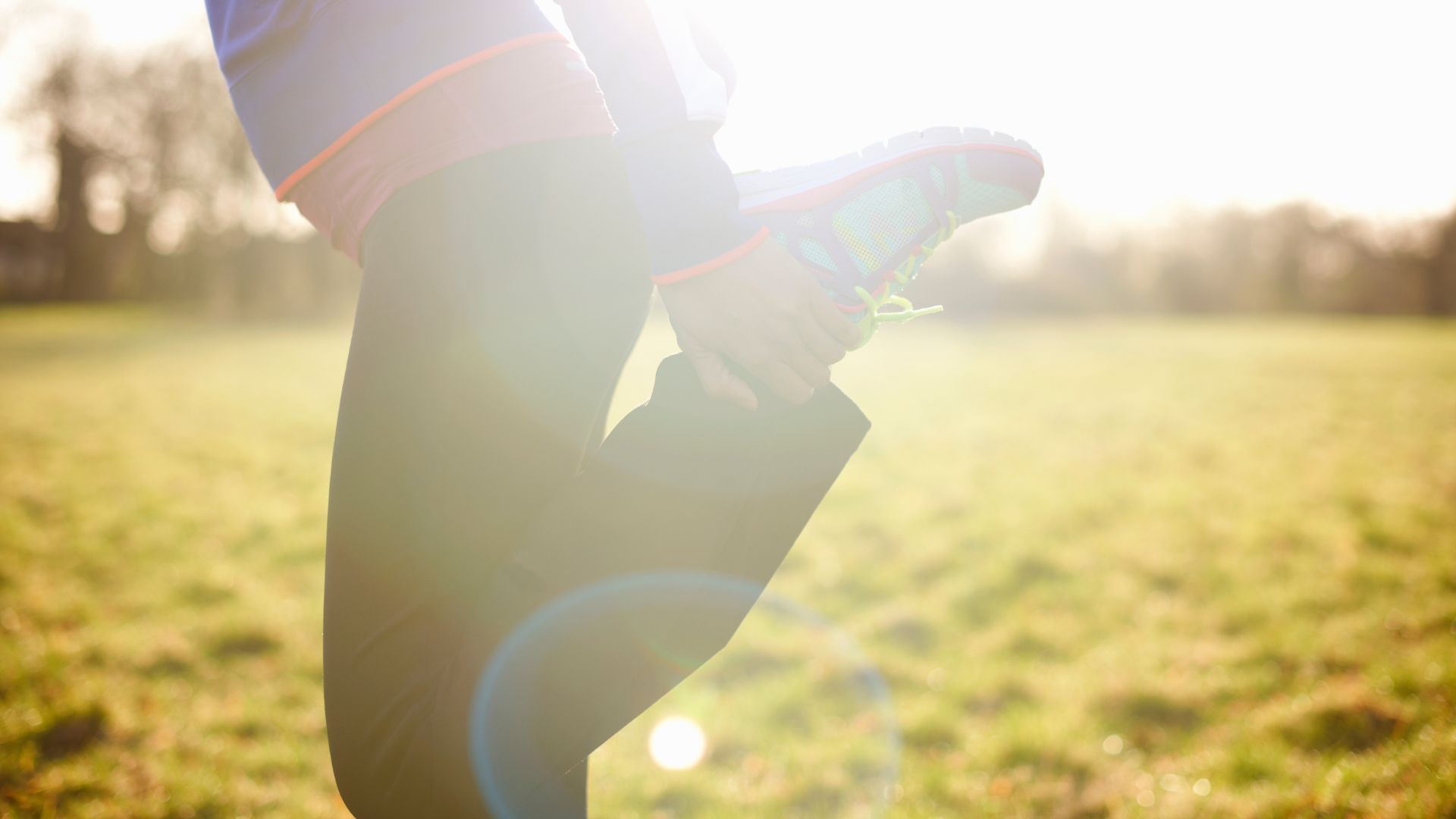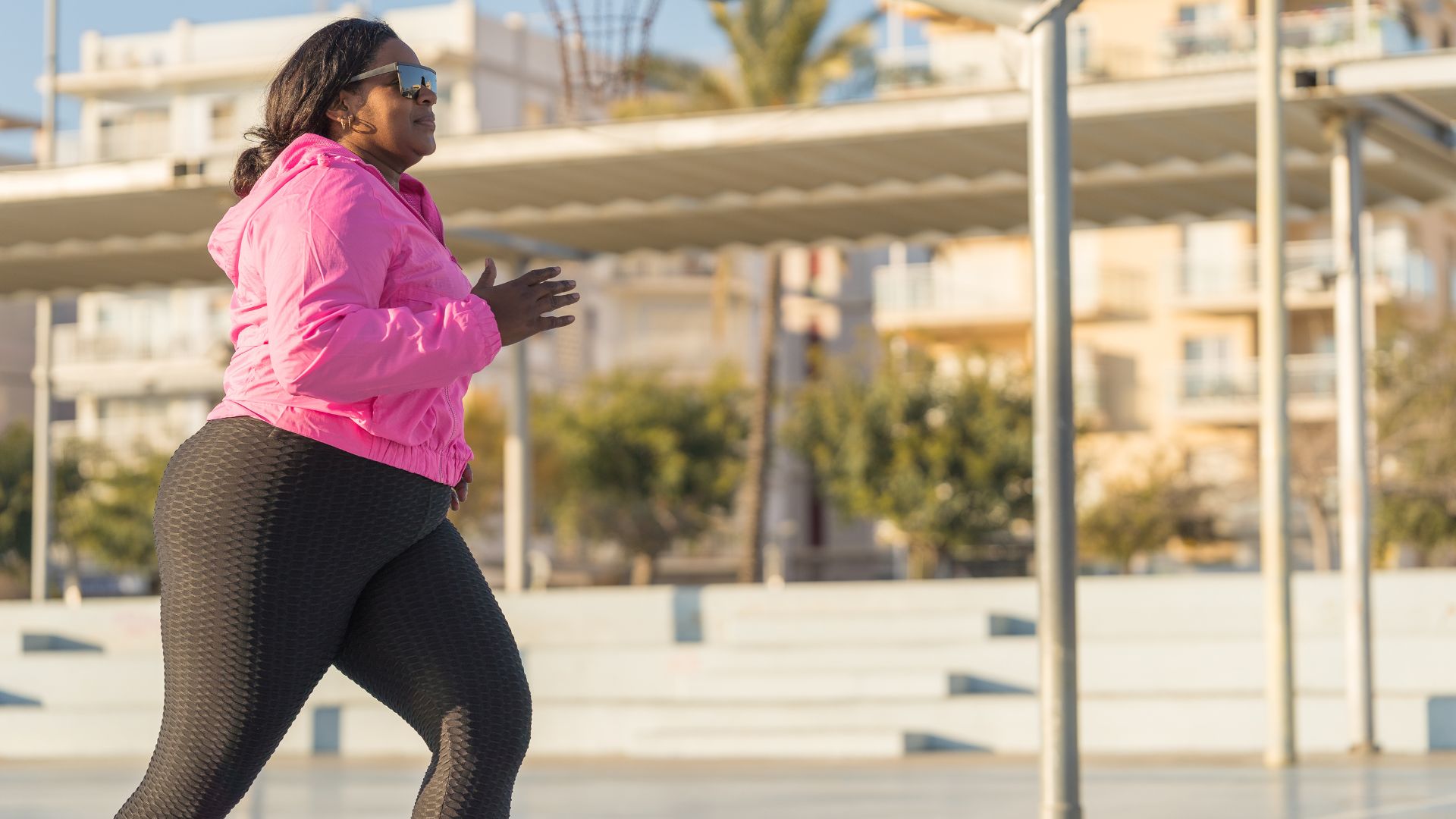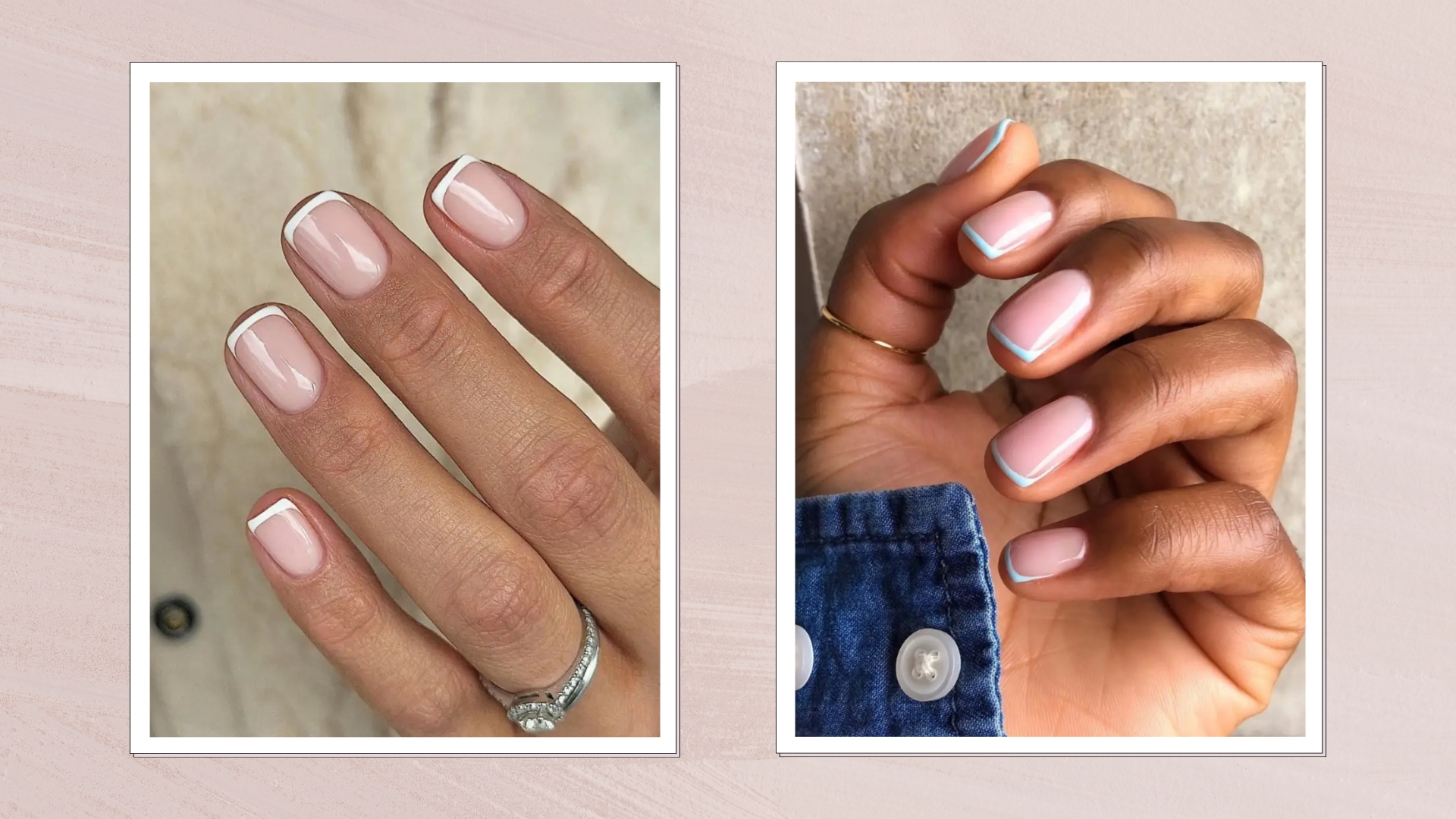Is running good for you? 5 advantages you don't want to miss out on
Running can seriously improve your health. Here, three experts explain how running is good for you


Is running good for you? If you've ever headed out on a jog only to stop five minutes in, exhausted and out of breath, this is a question you may have asked before.
There's no doubt that exercise does wonders for our mental and physical health, no matter the form it comes in. Whether it's running, walking, swimming, or strength training, getting out and getting your heart rate up seriously and positively impacts how your body and mind feel today - and how it will feel in 10 years.
But running is one of the most popular cardio activities in the world, with around 50 million Americans (about 15% of the population) considering it their main form of exercise. Even in the last two years, according to data from Strava, the interest in running has surged - with the number of marathon participants now double what it was. So, what are the benefits of running for women? Here, woman&home speaks to three experts to reveal all, from the benefits of running for weight loss to how it improves our social skills, plus whether running is actually bad for your knees.
Is running good for you?
Yes, there's so much evidence to show that running is a great sport for improving and maintaining our overall health. As Dr Luis Javier Peña-Hernández, a specialist in pulmonary and internal medicine, explains, "Running on a regular basis, without any doubt, will improve your cardiovascular health, your lung health, and your overall health provided it's not contraindicated by your doctor due to medical conditions."
Plus, the great thing about running is that you don't need to be a regular marathoner to reap all the advantages of the sport. Running, just like any other physical activity, should be enjoyable so whether you want to just head out for a run around the block to clear your head or start a training program with one of the best running apps out there, you'll feel the effects. All you need to do is lace up your pick of the best running shoes to get started.

Advantages of running
1. Improved aerobic capacity
Whether you're thinking about learning how to start running or you're a couple of weeks into your training program, you won't be surprised to learn that running majorly improves our respiratory and cardiovascular health.
"Running regularly increases the efficiency of your cardiovascular and respiratory systems," confirms Dr Peña-Hernández, who also operates the LungMD platform. "This increases the efficiency to deliver oxygen to your muscles and all your body. Like everything else, the more you do it, the more efficient your heart, lungs, and blood vessels get at it. It ultimately translates to more efficient utilization of oxygen to achieve an increased amount of work. The more work we can do with the use of oxygen is known as aerobic capacity."
Sign up for the woman&home newsletter
Sign up to our free daily email for the latest royal and entertainment news, interesting opinion, expert advice on styling and beauty trends, and no-nonsense guides to the health and wellness questions you want answered.
In the short term, this means you'll be able to climb the stairs without getting out of breath or be able to run for the bus without needing to sit down when you get there, but in the long term, it means you'll be less prone to developing some serious adverse health conditions. As a review from the University of Louisville explains in detail, those who exercise regularly have lower blood pressure and higher insulin sensitivity, lessening the risk of conditions like cardiovascular disease.
2. Better sleep
One of the top advantages of running is how it impacts your sleep. With research from the Institute of Medicine showing that up to 70 million Americans can't get a full 8-hours of sleep a night, it's something to consider if you're wondering how to sleep better and wake up early.
"There are two main ways in which running can help to improve our sleep," explains running coach Lillie Bleasdale. "It increases our general level of activity, which means the body is more tired, and therefore, more rest is required and you require more sleep. Secondly, running boosts our levels of serotonin, which can help regulate our sleep."
3. Stronger muscles, joints, and bones
It may come as no surprise to learn that running can really help our muscles, joints, and bones. Physiotherapist Katie Knapton says, "Any activity that leads to movement is, in general, good as our joints, muscles, and tendons need movement to increase blood flow and improve lubrication."
But she notes, "Running does predominantly work and strengthen your leg muscles, including the quads, calves, hamstrings, and glutes."
The positive effects of running on our bones also shouldn't be undervalued, says Knapton, who is also the founder of Physio Fast. "We have plenty of evidence to show that high-impact exercise, of which running is an example, places stress on bones. The bone then adapts by laying down more minerals within the bony matrix to strengthen the structure overall."
Strength training has a similar effect, she notes, and both sports "can affect the production of bone-building hormones and help stimulate the body to produce more bone cells." This means, just as running reduces our risk of cardiovascular disease by strengthening the heart, running reduces incidences of osteoporosis because of the positive effect it has on our bones.

3. Running helps you perform in other sports
If you're wondering 'is running good for you' because you're looking to switch from another activity to running, then we've got some good news for you. "It can be a fantastic complementary activity for a whole host of sports and the results it will give to a rounded training plan can be highly complementary," says Bleasdale. "If you're working toward competing in a sport which overall looks for a high level of fitness, then running will only help add to this."
In the short-term, she adds, the increase in cardiovascular fitness offered by running helps us recover faster from physical activity - so you can get on with your favorite activity of the two with fewer breaks. In the longer term, research from the National Cancer Institute in the US that shows a combined routine of easy cardio exercises and some form of resistance training, whether that be yoga for beginners or a HIIT workout, lowers the risk of many health conditions more than just one or the other.
4. Mood booster
Still wondering 'is running good for you'? Wait until you hear about the mood-boosting power of even just going out for 10 minutes. According linked to the University of Tsukuba, just 10 minutes of moderate to intense running can increase healthy blood flow to the part of the bilateral prefrontal cortex. This is the part of the brain that plays a key role in controlling our mood.
Another study, by La Trobe University, looked at the impact of running on a treadmill on participants' mental wellbeing over a one-hour period and found that running for just 40 minutes drastically improved participants' mental wellbeing. Known as 'runner's high', the researchers found participants experienced intense feelings of energy, elation, and mental clarity in just this short time, along with better mental composure.
5. Running can help you build a community
If you're new to a city or looking to make some changes in your life, one of the biggest advantages of running is that so many people do it.
It's something coach Bleasdale, who is also working on behalf of the London Landmarks Half Marathon, has seen firsthand. "Joining a local running club can help encourage us to show up for our sessions and training, and keep us adherent," she says. "Adding in an element of socializing to your training can also be a great boost to your mental health if you live in a busy city or have a fast-paced, stressful work environment. Signing up for races can also be a really strong encouragement to get us out the door and training on harder days."
Is running bad for your knees?
No, contrary to popular belief, running isn't bad for your knees by nature. "Latest studies, including those by Baylor College of Medicine and Humboldt University, have shown that our joints respond to the load and in fact, long-distance runners have been shown to have thicker cartilage in response to the load over time," says Knapton.
However, there's no doubt about it that running is an intense sport and if you start running 30 minutes a day, you're going to notice the impact. "This needs to be taken sensibly and you need to take into consideration current fitness and levels of activity, as overload can lead to injuries," the physiotherapist adds. "It would not be advisable to run into pain." For the same reason, many coaches and running specialists advise beginners not to run every day as one of the more typical running mistakes.

Grace Walsh is woman&home's Health Channel Editor, working across the areas of fitness, nutrition, sleep, mental health, relationships, and sex. She is also a qualified fitness instructor. In 2025, she will be taking on her third marathon in Brighton, completing her first ultra marathon, and qualifying as a certified personal trainer and nutrition coach.
A digital journalist with over seven years experience as a writer and editor for UK publications, Grace has covered (almost) everything in the world of health and wellbeing with bylines in Cosmopolitan, Red, The i Paper, GoodtoKnow, and more.
-
 We're in awe of Sienna Miller's easy-going and 'piece-y' hairstyle and how perfect it is for spring
We're in awe of Sienna Miller's easy-going and 'piece-y' hairstyle and how perfect it is for springThis laid-back hairstyle is - quite literally - making waves this season
By Naomi Jamieson
-
 We never thought we'd see this 'dated' manicure make a chic comeback, but here it is - and we're on board
We never thought we'd see this 'dated' manicure make a chic comeback, but here it is - and we're on boardClean and angular, short square French tips are a go-to this season for a practical but stylish manicure...
By Naomi Jamieson